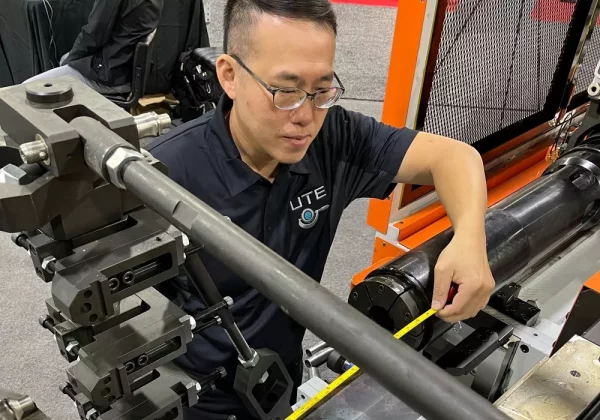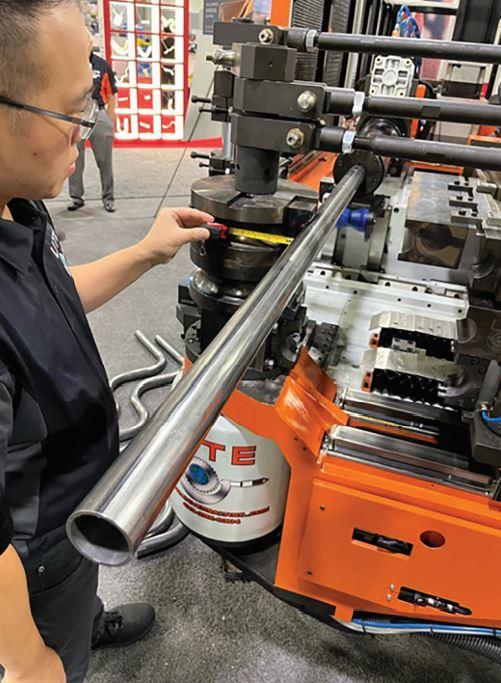UTE was recently featured in the Tube and Pipe Journal’s The Fabricator. Read an excerpt below. Read an excerpt from The Fabricator magazine below.
Understanding tube bender axis positions can help solve problems
How metalworking shop can spot the causes of changing leg lengths in bent tube
By Jay Robinson | January 3, 2023
Fred Hou of Universal Tool and Engineering confirms the carriage position (Y axis) by measuring from the face of the pressure die to the face of the collet.
One of the most common concerns we hear from our draw-bending customers is that the straight lengths on their parts are inconsistent. This is almost always caused by either poor tooling setup or excessive tooling wear. Tooling that slips on the part can cause short or inconsistent leg lengths in parts that otherwise look perfect. Too much slipping will cause quality defects in the bend, such as wrinkles, excessive wall thinning, and breakage.
So, how do you know if leg length variations are caused by inconsistency in the machine positions or by tube slippage in the bend tools? Understanding how CNC tube bender axes are measured and set may help to determine if part inconsistency issues are caused by tooling setup or possibly tool wear, allowing the tube to slip through the tools.
Continue reading this article here.


